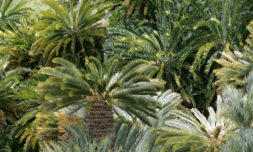Despite growing controversy, the easiest way for a giant conglomerate to continue creating dangerous emissions is through offset programs. In reality, when it comes to tree planting, some such projects are doing far more harm than good.
Uncovering instances of greenwashing these days can be achieved with a simple Google search… and a generous helping of common sense.
Take, for instance, French oil giant TotalEnergies – which proudly declared last summer that it will be planting 40,000 hectares of trees as part of its expanding offset ambitions.
Only problem is, a more thorough examination of these plans quickly outs them as exactly what they are: poorly assembled, and lacking any real care. Are we being too harsh? Nope, not at all.
TotalEnergies has selected central African region Bateke Plateau as the base for its ‘eco’ initiative, and plans to fill sparse regions with acacia trees.
Predictably, there has been a grave absence of due diligence, however, and several experts have highlighted a grave mismatch in environment and tree species. According to those who know the field (if you will), this will likely have adverse effects that far outweigh any climate benefits.
This alarming instance is merely a fly in the ointment too, when you consider the full scale of the problem. In the past 30 years, tree planting has increased by 288% – mostly spurred by commodification crops like global wood and rubber supply, as well as controlled reforestation.
On the latter, a growing sense of conscious consumerism has companies scrambling everywhere to appear socially responsible. And, what’s easier than genuinely transforming outdated and harmful business practices? Offsetting them with something considered the opposite of those things… and boy is it popular at the moment.




















